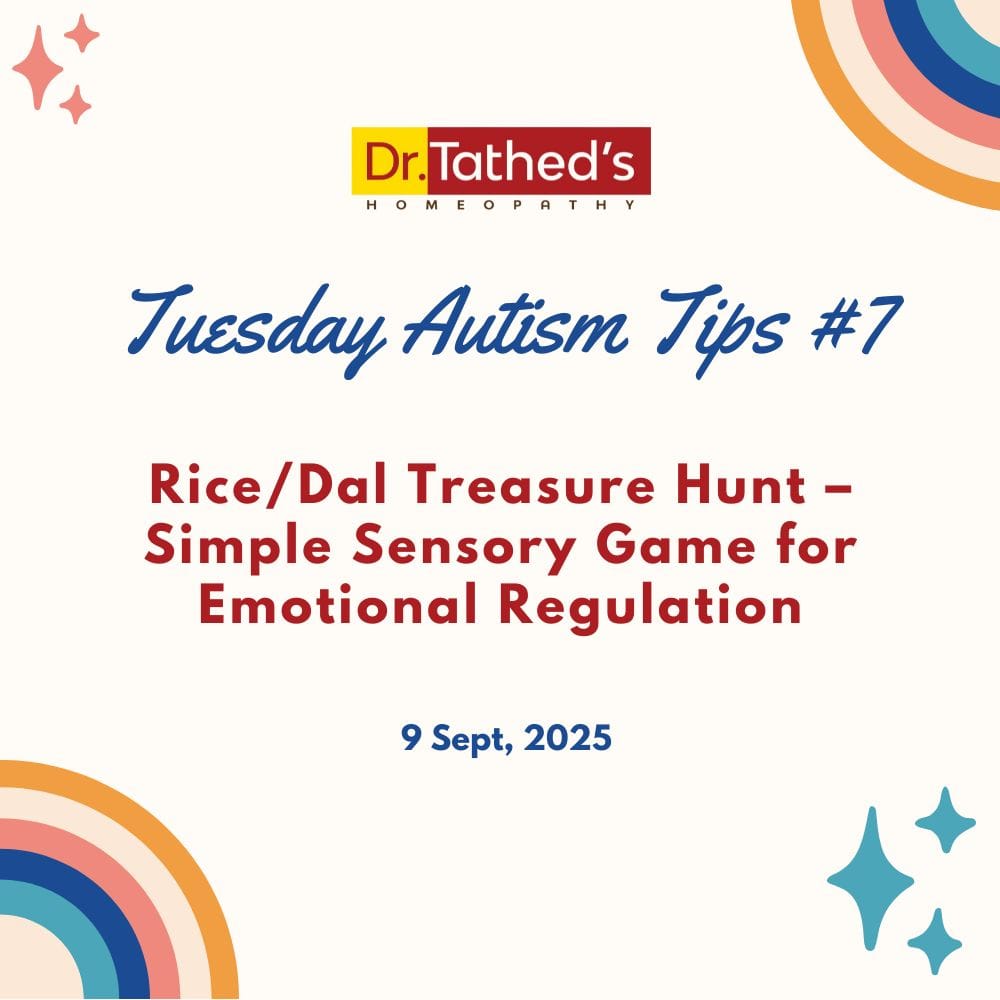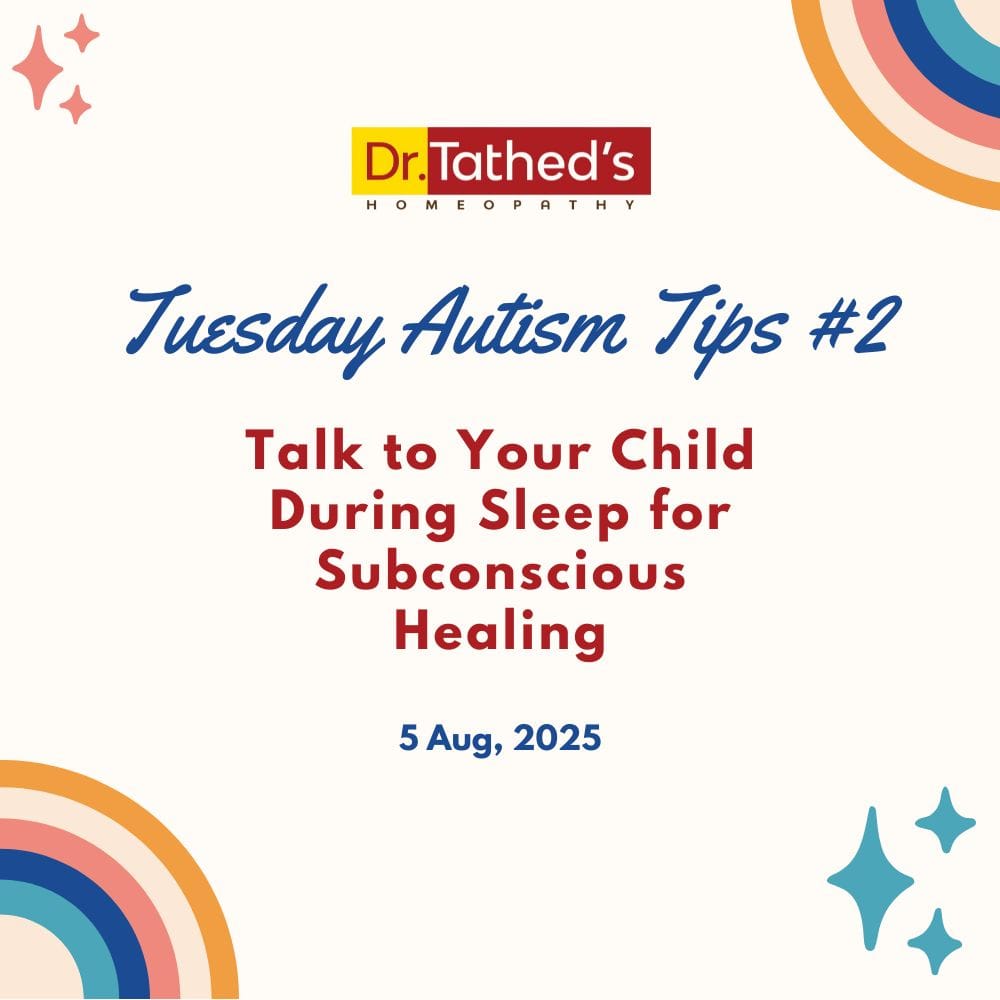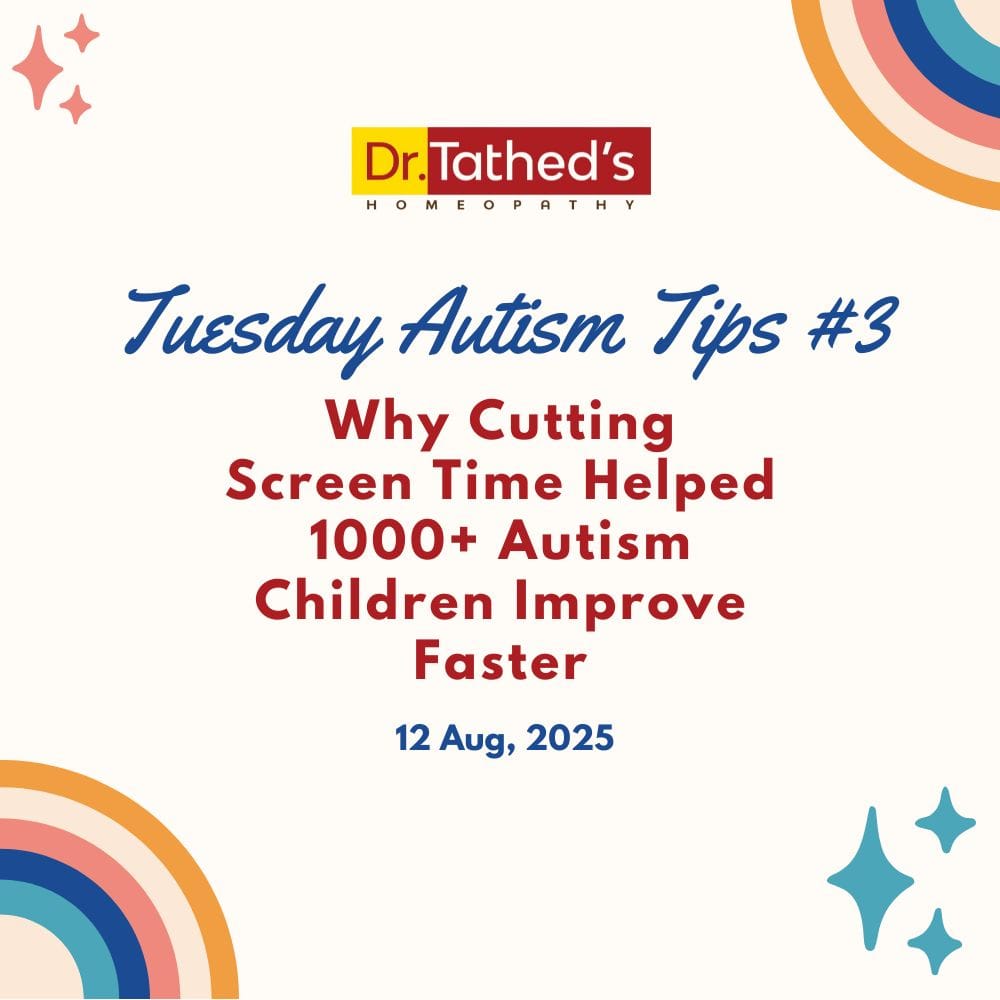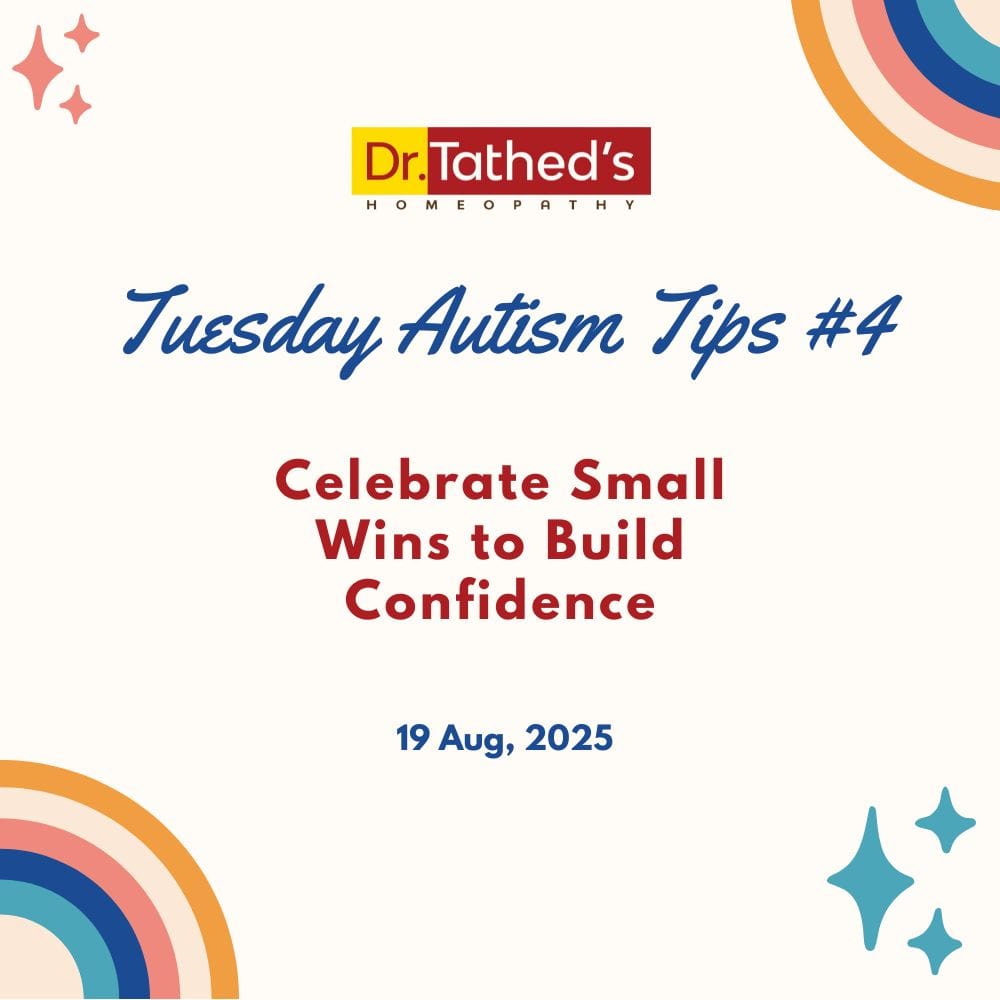Rice/Dal Treasure Hunt: A Simple Sensory Activity to Calm and Engage Your Autistic Child
Children with autism often benefit from structured sensory play. At Dr. Tathed’s Homeopathy, we encourage parents to include hands-on activities that support emotional regulation, focus, and sensory integration.
One such activity is the Rice/Dal Treasure Hunt — a fun and calming tactile game that works wonders at home.
🧠 Why Sensory Play Matters
Autistic children may experience sensory processing difficulties, especially with touch. Sensory play activities like this help them explore and become comfortable with different textures and sensations in a safe, non-threatening way.
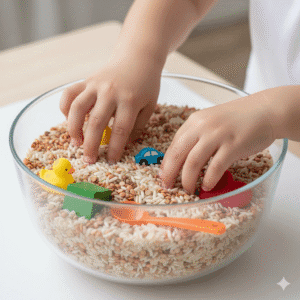
✅ How to Do the Rice/Dal Treasure Hunt
-
Take a large bowl or tray and fill it with uncooked rice or dal.
-
Hide small toys, spoons, or textured objects inside the bowl.
-
Ask your child to search using only their hands.
-
As they find each item, name it and count it out loud.
🎯 Key Benefits of This Activity
-
Improves tactile (touch) awareness
-
Enhances fine motor skills and hand coordination
-
Develops patience and attention span
-
Provides calming sensory input that helps reduce anxiety
-
Encourages language and interaction when done playfully
🧪 What We’ve Observed at Dr. Tathed’s Homeopathy
Parents who integrate sensory activities into daily routines often notice:
-
Reduced restlessness and hyperactivity
-
Better focus during therapy sessions
-
Increased interest in play-based interaction
-
Improved response to homeopathic remedies due to emotional regulation
🩺 Homeopathy + Sensory Support = Holistic Healing
Simple activities like this, when practiced consistently, can greatly complement your child’s homeopathic treatment.
👉 Missed your child’s follow-up or medicine doses? Contact us now
🔗 Explore our Autism Treatment Program
🙋 People Also Ask (FAQ)
1. What is the Rice/Dal Treasure Hunt activity for autism?
It’s a sensory game where you fill a bowl with rice or dal and hide small toys inside. The child searches with their hands, which improves tactile awareness and focus.
2. How does this activity help children with autism?
It improves fine motor skills, reduces anxiety through calming sensory input, and builds attention span—all essential in autism development.
3. Is sensory play like this recommended with homeopathy treatment?
Yes. Emotional regulation through sensory play enhances the effectiveness of homeopathic remedies by balancing external and internal healing.
4. Can non-verbal autistic children benefit from this?
Absolutely. They engage through touch and visuals, which supports communication and cognitive development in a low-pressure setting.
5. How often should I do this activity with my child?
Just 10–15 minutes a day can be highly effective when done consistently as part of a calming routine.
